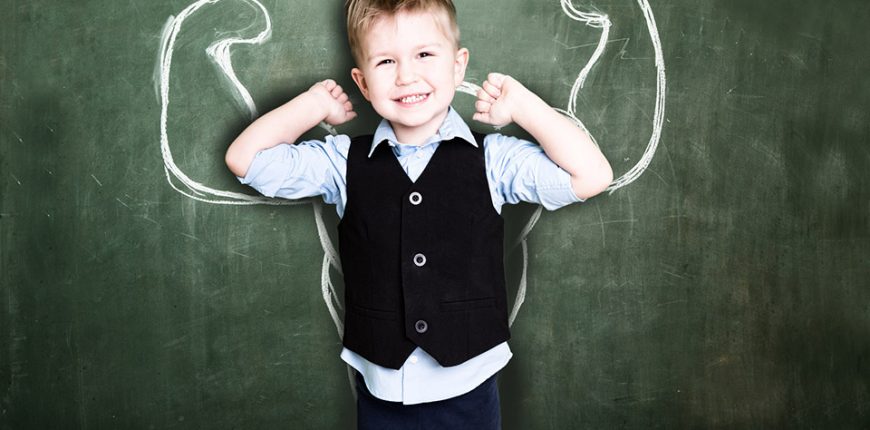Self-confidence means feeling good about ourselves as a result of developing good feelings about ourselves. It means being happy to be ourselves and, as a result, being at peace with ourselves and our environment. Our good feelings towards ourselves begin to develop in infancy. In fact, according to some thinkers, self-confidence begins in the womb. Namely, the mother’s first communication with her baby helps the baby develop a sense of self-confidence.
Self-Confidence Begins in Childhood
The baby, who understands that certain things are being done for him through his communication with the mother, lays the first foundations of his personality structure in the womb. Later, applying the necessary self-care to the child correctly in the early infancy period, giving the most basic need, love, in the right and appropriate dose, showing that you are trying to communicate with him/her through various activities (gymnastics, music), instills in the baby the feeling that he/she is cared for and taken into consideration. In early childhood, both mothers and fathers have great responsibilities and influences on the child’s personality development. Both mother, father and other individuals living at home should make the child feel and show in various ways that he is a member of the house. Even the slightest idea received from the child about daily life has great importance in the child’s identity and personality development.
The Importance of Family Support
When we look at successful people today, it is seen that one of the most important factors of their success is family support. A child who is given the opportunity can express himself. When a child discovers a branch of art, sports or any other remarkable activity in any way, the family should support it. Asking your child what color he wants to wear, what he wants to eat, what he would like to see or watch may seem like small things, but it is actually one of the biggest contributions to helping his child develop a sense of self-confidence.
A child is like dough ready to take any shape. It immediately receives and synthesizes every information you give, what is said and discussed. That’s why ideas should be shared with children, and areas where they can enjoy and be successful should be explored jointly. Children who see what to do, why they enjoy it, and have goals do not have self-confidence problems. What families need to do is to stand behind their children in their successes and failures and to show their children that they love them unconditionally. If a child sees and understands that he is loved, he can take important steps for his own future and develop various problem-solving methods, thanks to his self-confidence, in the face of daily problems or big problems he will encounter.
Our good feelings towards ourselves begin to develop in infancy. In fact, according to some thinkers, self-confidence begins in the womb. Namely, the mother’s first communication with her baby helps the baby develop a sense of self-confidence. The baby, who understands that certain things are being done for him through his communication with the mother, lays the first foundations of his personality structure in the womb.
Later, applying the necessary self-care to the child correctly in the early infancy period, giving the most basic need, love, in the right and appropriate dose, showing that you are trying to communicate with him/her through various activities (gymnastics, music), instills in the baby the feeling that he/she is cared for and taken into consideration. In early childhood, both mothers and fathers have great responsibilities and influences on the child’s personality development. Both mother, father and other individuals living at home should make the child feel and show in various ways that he is a member of the house. Even the slightest idea received from the child about daily life has great importance in the child’s identity and personality development.

